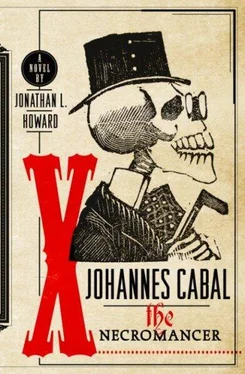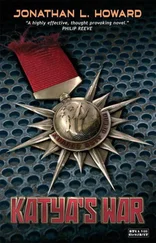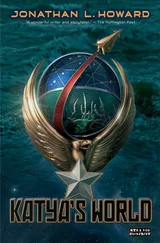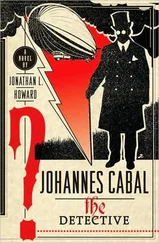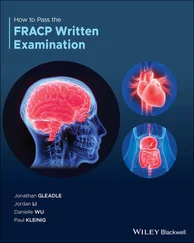With a whirr, the tableau came to life. The baby’s arms rose and fell with mechanical rhythm as the head rolled from side to side. Crying. Demanding. Never shutting up. In time to the baby, the mother put her hands to her ears and shook her head. She was at the end of her tether. Not a day went by when she didn’t consider suicide. The woman rested her forehead against the cool glass and bit her lip.
There was a distinct click , and the floor rotated by one-third of a revolution anti-clockwise, changing scenes. Now the mother stood in the bathroom. Using the washstand as a table, she was mixing something. Powders and liquids from the cabinet. It was a strange thing, but, although the largest bottle she handled was the length of a thumbnail, the labels were clearly legible. A jigger of this, a pinch of that went into a mortar and were thoroughly mixed. When she had finished, the tiny mechanical mother poured the solution into a baby’s bottle. The implication was all too clear. As she read the label for the scene, “A Solution Presents Itself,” the amazing dexterity of the automaton never struck her as remarkable. She was living the little drama herself. She almost moaned aloud as, click , the scene rotated again to its final third. Here was retribution, be it earthly or divine; she had seen too many of these machines in her life to doubt a moral outcome. But … no. The final scene was of a graveyard. In her funereal weeds, the mother looked radiant as the mourners lowered a tiny coffin into the dark grave. And behind her handkerchief, was that a suspicion of a smile? The automaton looked out of the case, straight into her eyes, and she saw her own face there. Happy. The label affixed to a convenient tomb read, inevitably, “The Mother’s Escape.”
The machine made another click and returned to the hateful first scene. Barely had the whirring stopped before she was feeding it another coin. This time, when the second scene arrived, her lips moved as she memorised the ingredients of the baby’s bottle.
* * *
The police arrived an hour before dawn. Cabal was perfectly polite with them as they busied around and asked a lot of obvious questions. He was less happy to see that Barrow was in attendance. “I wasn’t aware that you were a member of the police force, Mr. Barrow,” he said, stifling a yawn.
“I’m not. Just a concerned party,” replied Barrow.
“Well, then,” Cabal said to the sergeant in charge, “I believe I’m within my rights to ask Mr. Barrow to leave?”
“No, you’re not,” said the sergeant. “Ex-Detective Inspector Barrow is here at my request and is acting as a consultant in this case.”
“‘Ex-Detective Inspector’?” said Cabal, impressed. “My, you are a man of many parts. ‘Case.’ What case is this?”
“There has been a murder. A particularly horrible one. The suspect claims that this carnival was involved.”
“A murder?” said Cabal, shocked and innocent.
“An infanticide, to be exact,” said Barrow. “A mother killed her own child. Claims that you have some machine in your arcade that tells you how to make poison.”
“Good heavens! Really?”
“You mean to say you didn’t realise that your arcade featured such a machine?”
“Oh, no, not for a second. We have no such machine. I was just surprised that anybody could concoct such a bizarre story. And that anybody would believe it.”
The sergeant bridled. “We have to follow up every lead, sir.”
“Of course you do. I understand entirely. Well, what else can I help you with? You have my word, there is emphatically no machine like the one you describe within this carnival. I’ve never even heard of such a thing.”
“The poison she made was a very cruel one, sir. The baby died in agonies.”
“Terrible.”
“She seems to have been under the impression that it would be un-detectable,” said Barrow. “She’s only a simple girl. I think she’s telling the truth in most respects.”
“Meaning what?”
“She came to this carnival last night. The very same night she concocts a poison and uses it. I don’t think she could have become Lucrezia Borgia at such short notice without professional help.”
“What are you insinuating?”
The sergeant coughed. “The arcade, sir, if you would. We would like to look at the machines.”
“Very well, but you’re wasting your time.” Cabal led the way for the little entourage of three police officers and Barrow to the arcade. He unlocked the big padlock that sealed the entrance and stepped aside. “Be my guests.” The party entered and stood in a huddle near the door while Cabal went around and opened the shutters.
Barrow’s eye lit upon the penny tableaux and he went to investigate, followed by the policemen. Cabal leaned against the wall and affected nonchalance. Barrow studied the row, reading the titles as he moved along it. “‘The House of Bluebeard,’ ‘The Pit and the Pendulum,’ ‘The Court of Ivan the Terrible,’ ‘The Haunted Bedroom,’ ‘Tyburn Tree.’ Very Grand Guignol , Mr. Cabal,” he said disapprovingly.
“It’s what people like,” replied Cabal, “Mr. Barrow.”
Barrow had arrived at the end of the row, a machine covered with a tarpaulin and with a sign fixed to it. “Out of order? What’s wrong with it?”
“I don’t know. Something mechanical. Quite beyond me.”
“We’d like to have a look at it if we may, sir,” said the sergeant.
“I don’t think that would be wise. You have my word there is no machine like the one that you have described. Isn’t that enough?”
“We’d like to see for ourselves, sir. The tarpaulin, if you please.”
“I really don’t think I ought.”
“That’s as may be, sir. But if you’ll pardon me …” The sergeant quickly undid the tarpaulin and pulled it away.
The machine was stuck in mid-action. On a moonlit street, an enraged husband chased a police officer down the garden path of a house. In an upstairs window, a woman with an unfeasibly large bosom mimed screaming with dismay. The police officer was notable for his uniform trousers being around his ankles. The machine was called “Cuckolded by a Copper.” The sergeant blushed. The little policeman looked really rather like him, a resemblance that wasn’t lost on his constables. Worse yet, the woman looked a lot like Mrs. Blenheim on Maxtible Street, whose husband worked a lot of night shifts. “Well, that would seem to be that,” he said quickly while attempting to put the tarpaulin back. It kept falling off, almost wilfully. “We’ll be on our way, sir. Thank you for your cooperation. You’ve been very patient.”
“Not at all, sergeant,” Cabal said pleasantly to the officer as he left, shooing his smirking subordinates before him. He watched them go and adjusted his spectacles.
“An interesting place, this carnival of yours, Mr. Cabal,” said Barrow from behind him.
“Thank you, Mr. Barrow,” he replied, turning.
“It wasn’t meant as a compliment. Just a comment: an interesting place. This arcade, for example.”
“Oh?” Cabal raised his eyebrows. “How so?”
“These machines.” Barrow pointed at the tableaux. “Horror and death the whole length. Then we get to the last one — the machine, incidentally, that the police was told was the one with the recipe for poison — and that one is broad comedy. Odd, wouldn’t you say? Out of place?”
“People like that sort of thing,” repeated Cabal. “So I’m told. It was put in as an afterthought.”
“An afterthought.” Barrow walked to the door and looked out across the carnival, pondering. “I don’t like this carnival of yours, Mr. Cabal. It’s distasteful.”
Читать дальше
